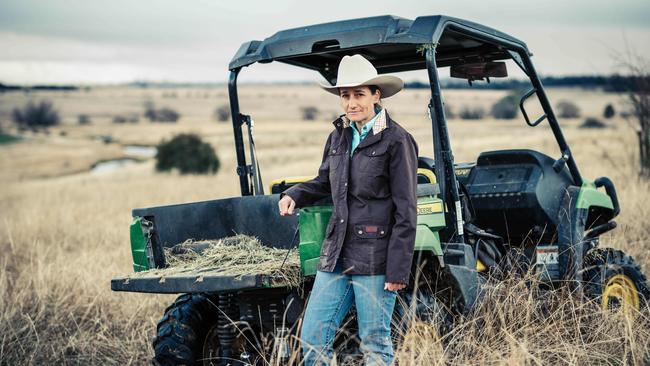Let live-export compensation rest, family urges
The family spearheading the battle to win compensation for the live-cattle export ban says the government should not appeal.

The family spearheading the long battle to win compensation for Labor’s live-cattle export ban has pleaded with the Morrison government not to appeal against the court ruling giving it victory.
The Brett family’s Northern Territory cattle business was devastated by then agriculture minister Joe Ludwig’s decision in 2011 to suspend live exports to Indonesia for six weeks.
Emily Brett, who with her late husband, Dougal, launched a class action in the Federal Court in 2014, said any appeal against last week’s decision in the plaintiffs’ favour would impose further hardship on farmers.
“This has been going on for such a long time and we just need closure,” said Ms Brett, who was a principal witness in the case.
“To think that we could have years in front of us with an appeal … we are weary.”
Ms Brett, who moved from the cattle property southwest of Katherine to be near family in Armidale in NSW after her husband’s death in 2015 in a helicopter accident, said the live-export ban had caused huge hardship.
“We didn’t sell any cattle for 11 months — we struggled to pay bills,” she said.
Ms Brett said the family’s fight was aimed at stopping what it regarded as capricious and politically motivated decisions by government. “Obviously, a big part of this case is that we wanted to be successful so we can prevent this from happening to other Australians in future,” she said.
While she accepted its right to appeal, she urged the Morrison government to “just let it rest”.
After 18 months’ deliberation, judge Steven Rares ruled that Mr Ludwig had committed “misfeasance” in the exercise of the law in ordering the live-export ban days after the ABC aired gruesome footage of cattle being mistreated in Indonesian abattoirs.
The decision in favour of the Brett Cattle Company, which runs more than 20,000 head of cattle, opens the way for hundreds of farmers, exporters, transport workers and others across the north to claim compensation of up to $600m.
The government has some concerns about the precedent set by Justice Rares’s ruling for how democratic government decisions could be made, although it believes those adversely affected could still be compensated even if the government were to challenge the court ruling.
Attorney-General Christian Porter has said a decision will not be made for some time.
Hamish Brett, Dougal’s brother and one of the owners of the Brett Cattle Company, told The Australian: “I hope they put it to bed now; we’ve won, they’ve lost.
“I think it should be setting a precedent to the government, and they shouldn’t be able to overturn it. I wouldn’t think they’d want to stick up for what Labor did nine years ago.”
Farming leaders have warned that an appeal would be hard-fought in a public and legal campaign. Tracey Hayes, the former head of the Northern Territory Cattlemen’s Association who remains the plaintiffs’ public advocate, held discussions with Mr Porter and Agriculture Minister David Littleproud on Tuesday.
“It’s our view that government should not appeal,” she said.



To join the conversation, please log in. Don't have an account? Register
Join the conversation, you are commenting as Logout